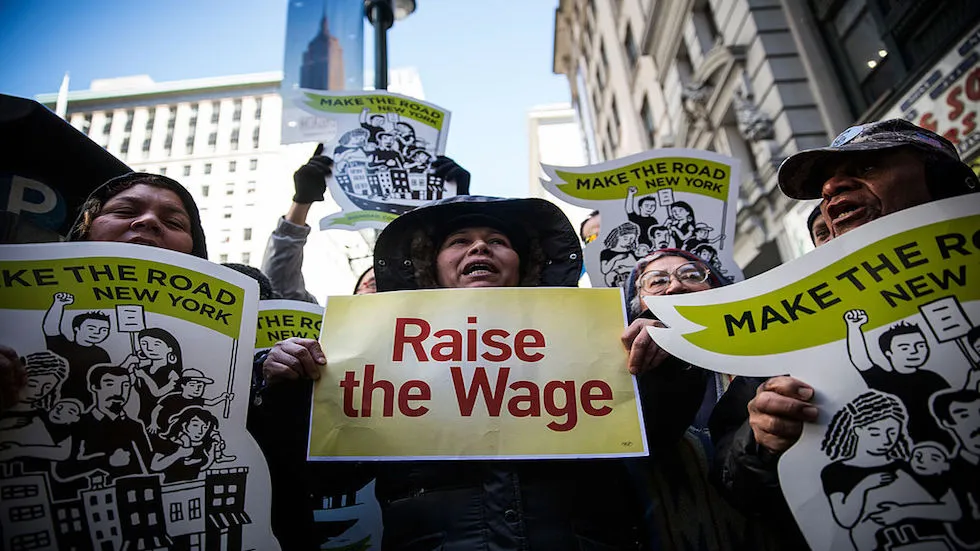In a concerning turn of events, Bangladesh’s garment manufacturers have decided to indefinitely shut down 150 factories amid growing tensions surrounding the demand for a higher minimum wage. This move comes as the police have issued blanket charges against 11,000 workers in connection with the violent protests that erupted across the country. Bangladesh is a major global player in the garment manufacturing industry, accounting for approximately 85% of its $55 billion annual exports. Renowned brands, including Levi’s, Zara, and H&M, heavily rely on the country’s 3,500 garment factories to meet their production demands.
The working conditions for the four million individuals employed in this sector, predominantly women, have long been a point of concern. Until recently, the minimum monthly pay for these workers stood at 8,300 taka ($75). The recent surge in violent protests seeking better pay resulted in the deaths of at least three workers. Moreover, as per official police reports, more than 70 factories were either pillaged or subjected to substantial damage.
Despite a government-appointed panel approving a 56.25% increase in wages, bringing the minimum to 12,500 taka, the garment workers have rejected this hike, instead demanding a minimum wage of 23,000 taka. Violent clashes between authorities and workers erupted on a major highway last week, leading to the ransacking of the Tusuka garment factory and a dozen other facilities.
In the given situation, amid this scenario, law enforcement authorities have filed charges against 11,000 individuals of unknown identity in connection with the assault on the Tusuka factory. This approach is frequently utilized by the Bangladesh police following extensive demonstrations, causing apprehensions over the possible suppression of opposing voices and the unjust persecution of unsuspecting individuals. Human rights groups have consistently criticized the mass filing of cases against thousands of unidentified people, claiming it provides authorities with impunity in dealing with protesters.
Prime Minister Sheikh Hasina, who has successfully maintained her position of power since 2009, is facing a significant challenge in dealing with the wage protests. With looming elections scheduled for January, a resurgent opposition has emerged to challenge her rule. As the working week commenced, factories in the industrial towns of Ashulia and Gazipur closed in anticipation of further strikes. Manufacturers cited unlawful strikes as the reason for invoking Section 13/1 of labour laws and shutting down 130 factories in Ashulia indefinitely.
Ashulia is home to several of the largest factories in Bangladesh, where a single facility can employ up to 15,000 workers. Recently, an incident occurred where clashes erupted between the police force and approximately 10,000 workers who were protesting. Authorities resorted to firing rubber bullets and tear gas as workers engaged in violent acts. In Gazipur, the country’s largest industrial zone, approximately 20 factories were forced to close as the protests intensified.
Prime Minister Hasina firmly rejected any further pay raises, warning workers that their jobs could be at stake if they engage in violent protests instigated by others. However, the unions organized defiant protests, expressing dissatisfaction with the panel’s decision and arguing that the proposed wage hike fails to align with the soaring costs of living.
International criticism of the violence inflicted on workers involved in protests has also surfaced, as the United States, being a major purchaser of garments manufactured in Bangladesh, has called for a rise in wages that effectively tackles the economic difficulties endured by workers and their households.
The recent closure of garment factories and the ongoing labour protests have sent shockwaves through Bangladesh’s vital textile industry, with concerns growing over the potential disruption of production and exports. It remains to be seen how the government, manufacturers, and workers can come to a resolution to address the pressing issue of fair wages and improved working conditions in the country’s garment sector.

